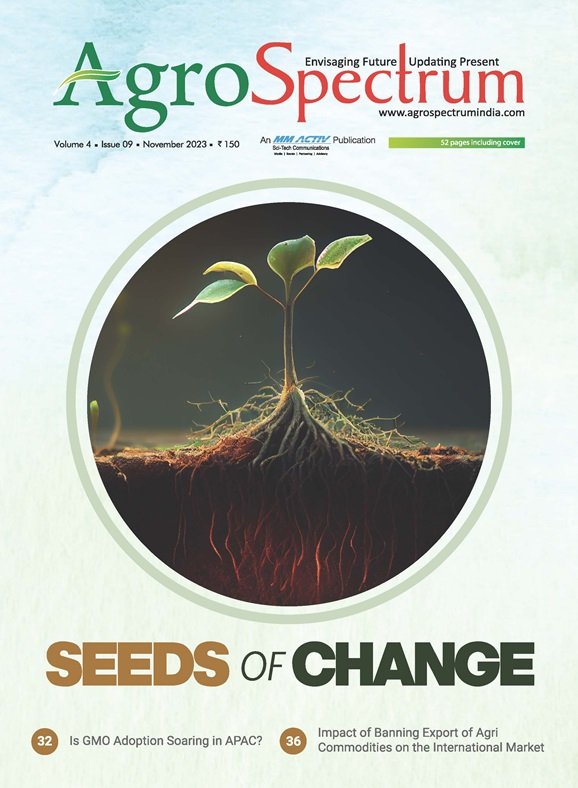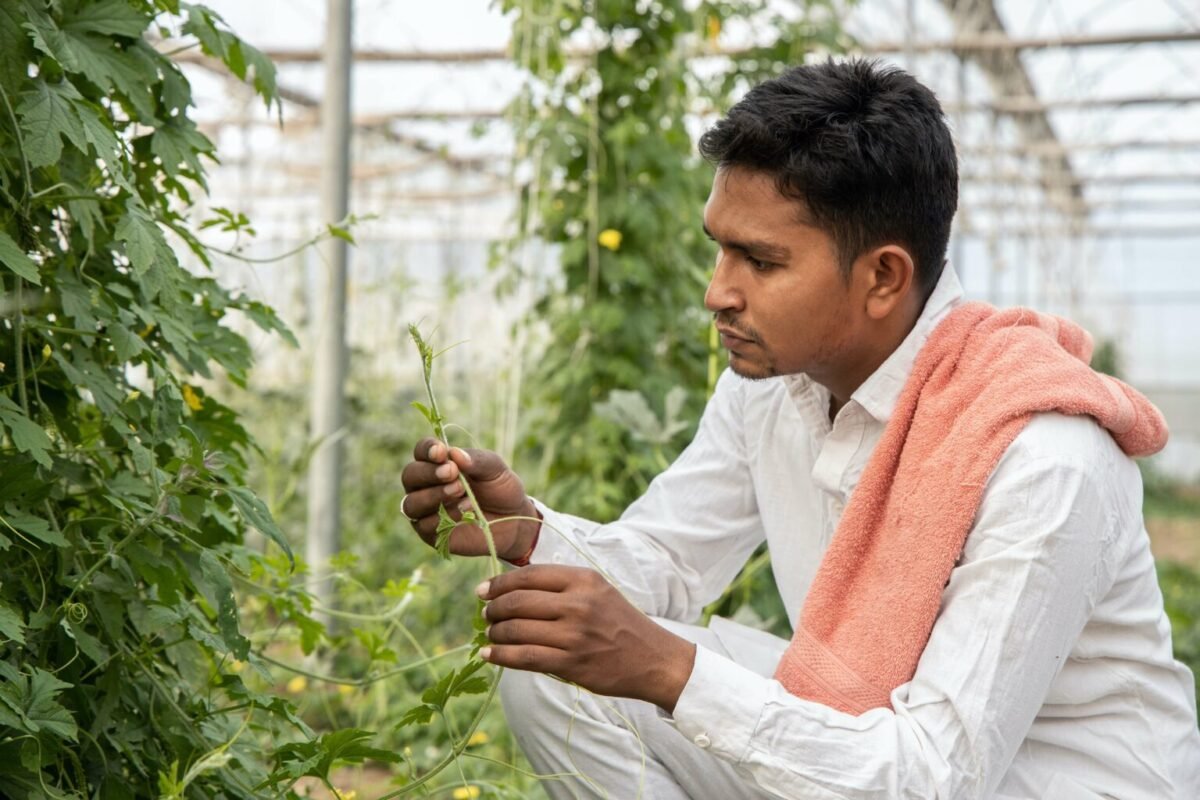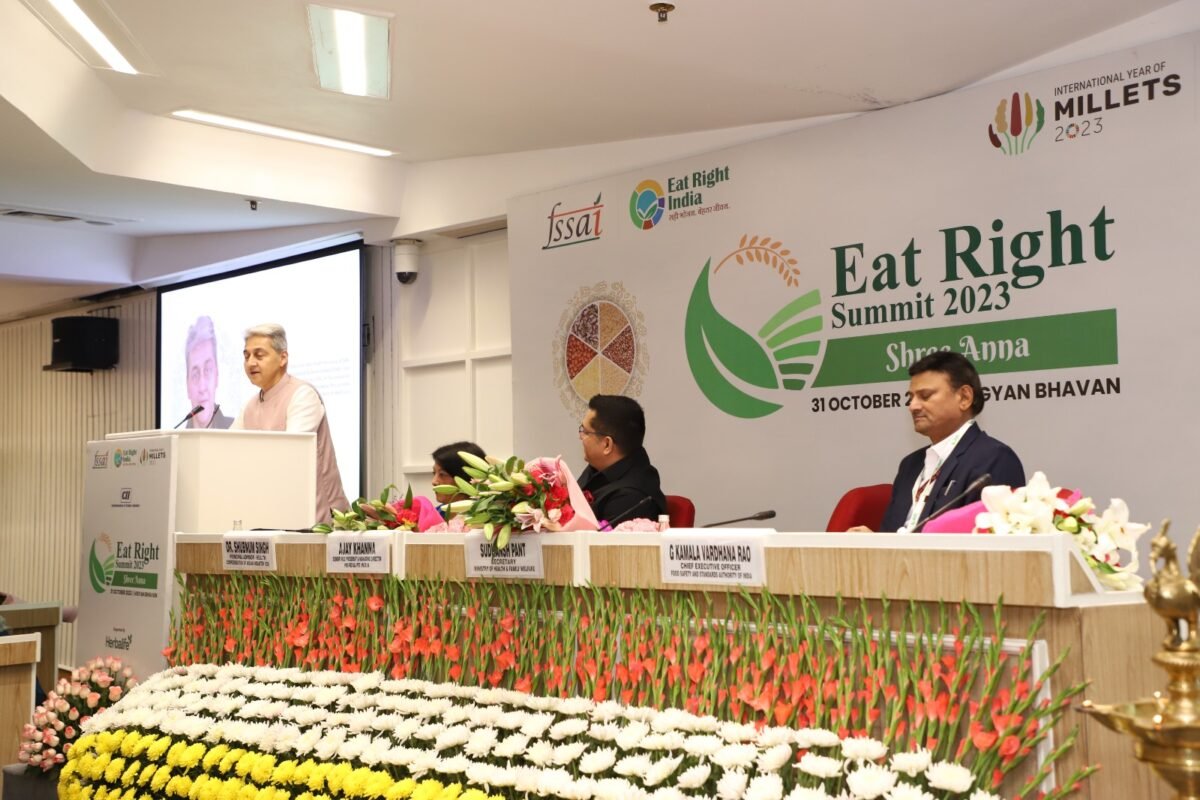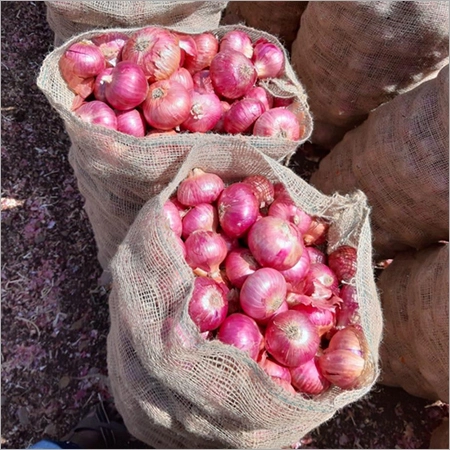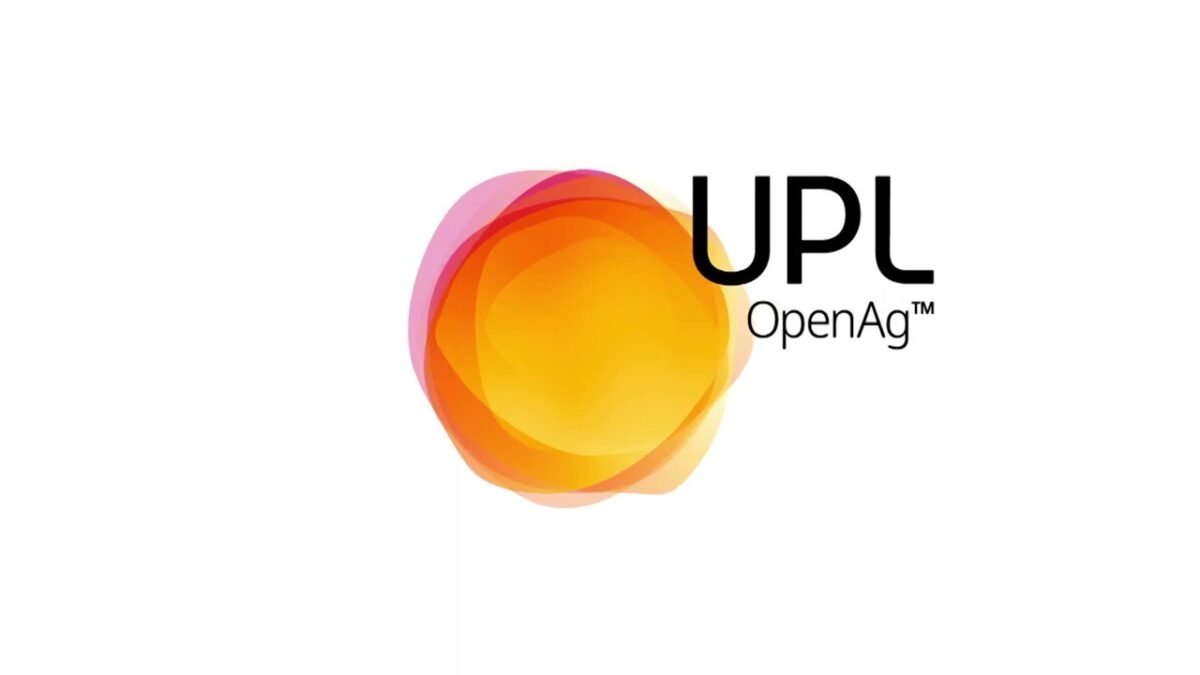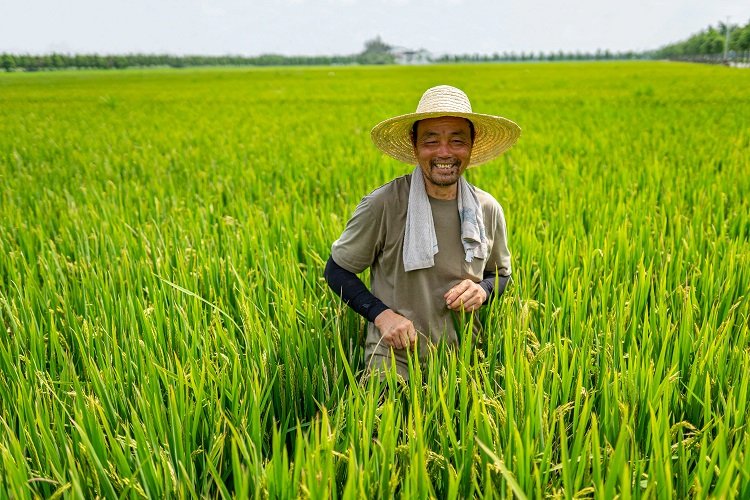SEEDS of CHANGE
According to TechSci Research, the Indian seed market is valued at $3,914.36 million in 2023 and is projected to grow at a CAGR of 7.41 per cent by 2029. The seed industry has recently gained the attention of investors and Indian investors are eager to see Initial Public Offerings (IPOs) from the seed industry. The government has authorised FDI in agricultural fields such as development and production of seeds and planting material. Apart from this, many private entities are getting attracted towards seed companies and are investing in them. The latest example is Summit Partners, a private equity group, that has bought a minority investment in two of India’s leading seed companies, Nuziveedu Seeds Ltd. and Krishi Dhan Seeds. Crystal Crop Protection Limited recently made a smart purchase from Kohinoor Seeds by acquiring the Sadanand Cotton Seeds company. Leading seed companies are also incorporating cutting-edge digital technologies to mitigate the effects of pests, climate, and other external variables on farming, propelling the market to expand. Data science, AI tools, cutting-edge phenomic analysis, and genomic sequencing are being leveraged to enhance production. However, there are certain challenges that are hampering the growth of this sector. For instance, marginal investment in R&D, short shelf life, unpredictability of demand, lack of effective monitoring mechanism, among others, are becoming a dampener in this growing sector. Let’s take a closer look at the Indian seed sector and gauge the projections for the future.
Over the decades, farmers across India have evolved a complex formal, informal, and integrated seed system that began with the age-old practice of saving seeds from preceding harvests. The diversity of formal seed systems has matured and the Indian seed industry has undergone significant transformation in the past 30 years.
Indicative of India’s evolving needs and market dynamics, the government’s initiatives have also helped evolve and grow the seed platform. New and enhanced seed varieties were primarily supplied by public research bodies such as the Indian Council of Agricultural Research (ICAR) and international institutes such as the Consultative Group for International Agricultural Research (CGIAR).
Commenting on these vibrant developments in the seed sector, Rajendra Barwale, Chairman, Mahyco Pvt Ltd. stated, “Indian agriculture will continue to progress well to not only meet the growing food and nutrition requirements of the country, but also to become a significant player in the global agri produce market. Implementation of scientific and technological innovations will help overcome various challenges of the Indian agriculture sector. Given that seed is the critical and determining input in the agriculture value chain, the seed industry will be a key contributor to this growth story by delivering the right technologies to our farmers.”
“A vibrant seed sector is pivotal to growth of agriculture, and it has played a vital role in improving crop productivity in every part of the world over the years. For example, the green revolution in India which made us food surplus from ‘ship to mouth’ in the early years of independence, was rooted in the improved varieties that we bred using genetics of wheat and rice brought in from Mexico and International Rice Research Institute (IRRI), Manila respectively. We can give a number of examples of such transformations through the science of plant breeding, globally and in India. However, presently, the size of the seed sector, vis à vis its potential, is relatively very small compared to other agriculturally developed countries, offering us a large opportunity for future growth. Given that growth of the seed sector would have a multiplier effect on the progress of the agriculture sector, support of the Government of India for growing the seed sector would benefit all stakeholders of Indian agriculture, and most importantly our farmers”, added Barwale.
Tech catalyst
Since the late 1980s, several governmental policies have provided a significant boost to India’s seed sector, which had its roots in the 1960s with the founding of the National Seeds Corporation. The industry was bolstered and Indian farmers were able to increase their output after the introduction of the Protection of Plant Varieties & Farmers Rights Act, 2001 and the release of Bt cotton hybrids for commercial cultivation in 2002. India’s seed market has grown to an expected $4–6 billion by 2023 (ISC, 2023; IMARC, 2023) and has significant unrealised potential as the seed hub for G20 countries.
G V Bhaskar Rao, Chairman & MD, Kaveri Seeds stated, “Seeds are becoming more regulated to accomplish a wide range of policy goals because of their significance, not just for farmers, but for society at large. Developing laws and regulations that support both formal and farmer-based seed systems while minimising negative impacts on breeding, selection, and seed output in either system is a challenge for policymakers”.
Improvements in seed technology have allowed for a greater variety of high-quality seeds to be produced, which perform better in a wider variety of environments. Applying seed technologies will guarantee good performance even under less favourable, unpredictable, and severe settings, while molecular technologies, speed breeding, and gene-editing tools speed up and improve the development of new crop varieties. Therefore, modern seed technology must integrate genetic improvement with applied technologies to deliver high-quality seeds of improved varieties with increased yields, lower input costs, and resistance to biotic and abiotic stresses.
To read more click on: https://agrospectrumindia.com/e-magazine
According to TechSci Research, the Indian seed

